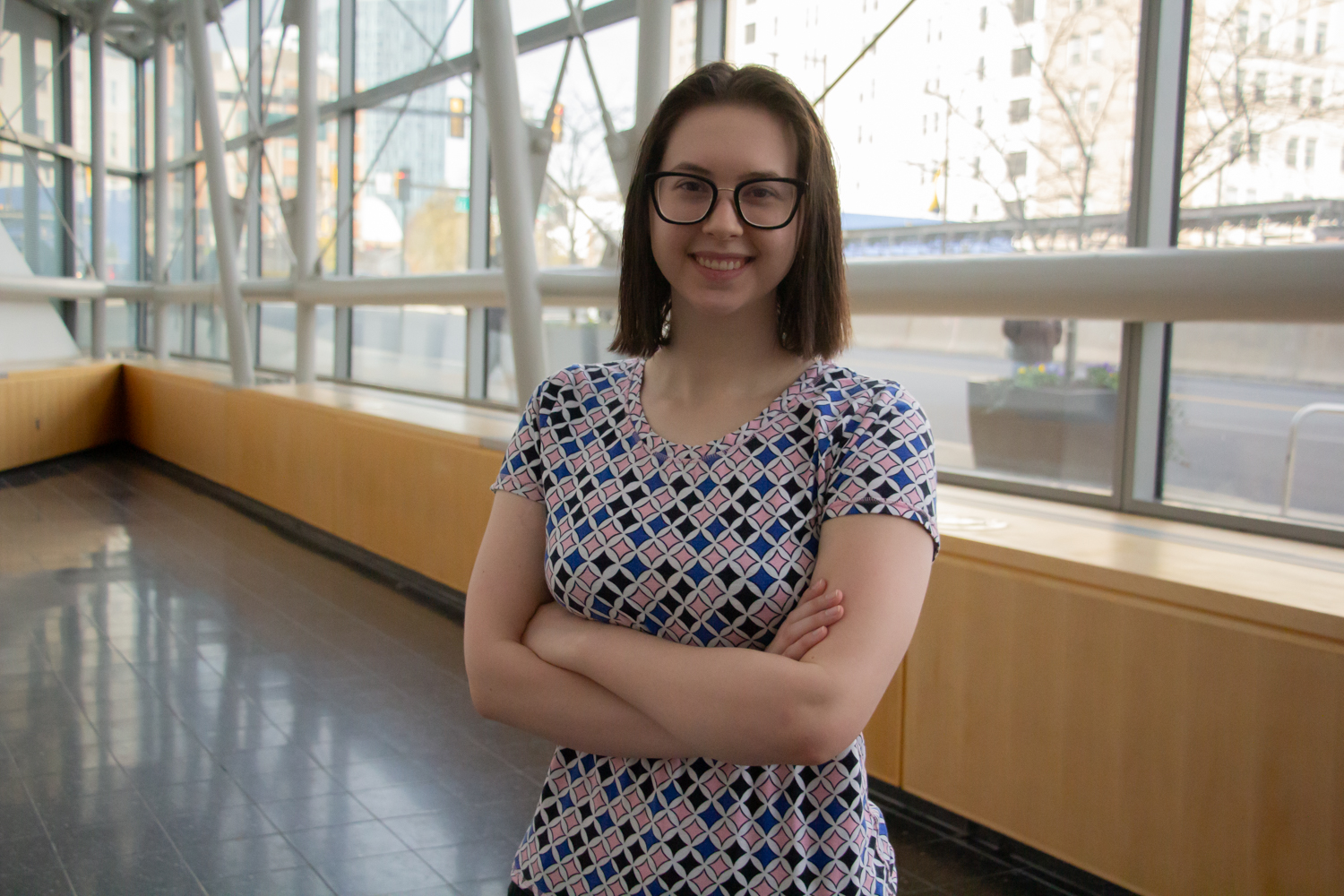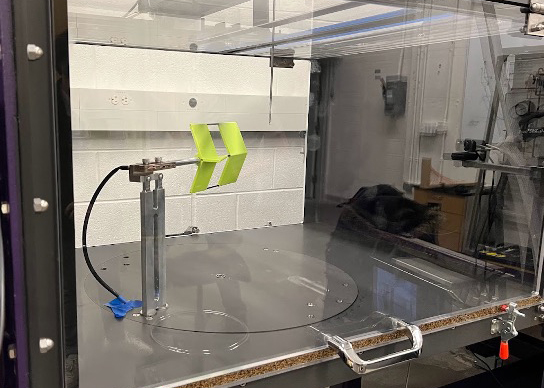
More than 270 years after Benjamin Franklin made them famous in
Philadelphia, a Drexel engineering student is part of a team that’s giving
kites a second wind.
Isabella Snyder, a BS/MS mechanical engineering student from Collegeville,
Pennsylvania, is working with researchers in the lab of Richard Cairncross,
PhD, professor of chemical and biological engineering, to develop kites
that can carry air quality sensors and other atmospheric and meteorological
measurement equipment.
Snyder is doing the research as part of the Vertically Integrated Projects
(VIP) Program, which brings together multidisciplinary groups of
undergraduate students, graduate students, research staff, and faculty
members to tackle novel research and design problems around a theme. The
kite project is meant to improve on existing methods of air quality
monitoring.
 A kite model is tested in a high-speed wind tunnel.
A kite model is tested in a high-speed wind tunnel.
“Kites have several advantages over weather balloons and drones,” Snyder
explained. “Because they’re tethered, it is easier to visually identify the
pilot than with remote-controlled drones, which improves public perception.
They are also better in high-wind scenarios and are cheaper and more
environmentally friendly than a battery-operated option.”
There are multiple teams of researchers working on the project. Snyder is
currently working with the aerodynamics team, developing formulas to
predict the stability of different kite designs and building models to test
them in a wind chamber. Because the VIP Program allows undergraduate
students to work on projects for up to three years, Snyder has been able to
see the research develop since the spring of her freshman year, when she
started the project as part of the STAR (Student Tackling Advanced
Research) program.
“It's really great because I'm able to see where the project started, meet
new people are coming in, help pass along the knowledge to them and also
expand the project and see where we've gone,” she said. “In classes, we
work on a project for one term, but with VIP, I’ve gone from basic Excel to
working in Python and helping with the wind tunnel. I’ve spent more time on
this than even my co-ops, so it’s really helped me develop,”
Working with Cairncross, Snyder has contributed to research that has been
presented at the STAR Scholars Summer Showcase and the American Geophysical
Union annual meeting. She has also collaborated with students and
researchers at Swarthmore College to perform the wind tunnel testing. She
said that the experience has amplified her passion for research.
“I completed a co-op with an incredible company last term, but while I was
there, I kept thinking about this project that I’ve been working on for
three years, and that’s where my greater interest is,” she said. “Once I
finish my master’s degree, I think I might go into a PhD program, because
I’ve found this passion for research through VIP.”